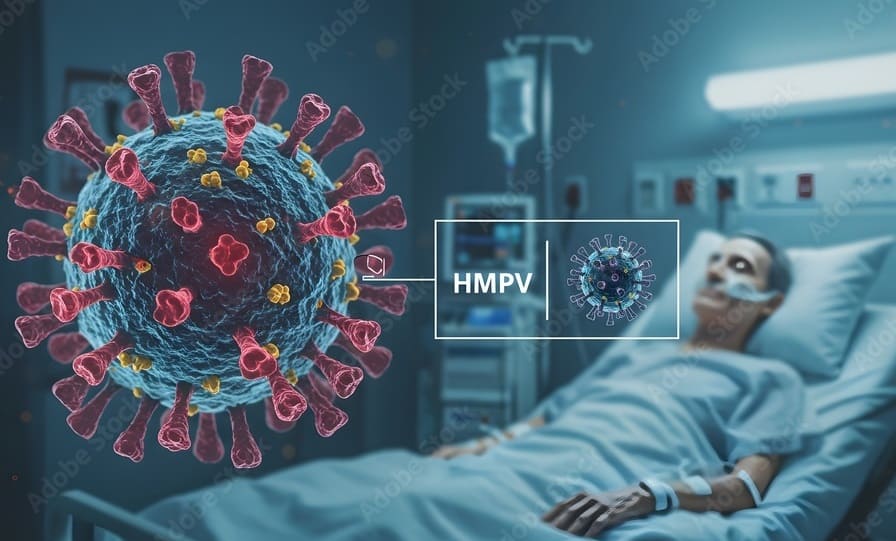Human Metapneumovirus (HMPV) might not be a household name, but it’s a virus worth knowing about, especially if you’re concerned about respiratory health. Experts point out that certain age groups are at a higher risk of severe complications from HMPV. Let’s dive into who’s most vulnerable and why, along with some practical tips to stay safe.
What is HMPV?
HMPV, short for Human Metapneumovirus, is a respiratory virus discovered in 2001. It is similar to RSV (Respiratory Syncytial Virus) and can cause mild to severe respiratory symptoms such as:
- Cough
- Runny nose
- Fever
- Shortness of breath
For most healthy individuals, HMPV feels like a common cold. However, for certain age groups, it can lead to severe complications like bronchitis, pneumonia, or even hospitalization.
Who’s Most at Risk of the HMPV Virus? Experts Explain
1. Young Children (Below 5 Years)
Children under the age of 5 are particularly susceptible to HMPV. Their developing immune systems make it harder to fight off the virus, and severe cases often require medical attention.
- Why?
- Immature immune responses
- Smaller airways prone to blockage
2. Older Adults (Above 65 Years)
As we age, our immune system weakens, making it harder to combat infections like HMPV. Older adults are at a greater risk of complications, especially if they have underlying conditions like:
- Chronic obstructive pulmonary disease (COPD)
- Heart disease
- Diabetes
3. Individuals with Weakened Immune Systems
People with compromised immunity, such as those undergoing chemotherapy, organ transplant recipients, or individuals with autoimmune diseases, are also at higher risk of severe outcomes.
Why Young Kids and Seniors Face Higher Risks from HMPV?
The vulnerability of young children and older adults stems from their body’s natural immune defense systems:
- In young children: Their immune systems are still learning to recognize and fight off infections.
- In older adults: Immunosenescence, or the gradual weakening of the immune system with age, reduces the body’s ability to respond effectively to viruses.
How to Stay Safe?
Experts recommend the following precautions to reduce the risk of HMPV, especially for those in high-risk groups:
1) Practice Good Hygiene:
- Wash hands frequently with soap and water.
- Avoid touching your face with unwashed hands.
2) Avoid Crowded Places:
- HMPV spreads through respiratory droplets. Avoid crowded spaces during outbreaks.
3) Stay Home if Unwell:
- To prevent spreading the virus to vulnerable individuals, stay home if you or your child shows symptoms.
4) Boost Immunity:
- For older adults, maintaining a healthy diet, staying physically active, and getting enough sleep can help strengthen the immune system.
5) Stay Updated on Vaccines:
- While no specific vaccine for HMPV exists, keeping up with flu and pneumonia vaccines can reduce complications.
When to Seek Medical Attention?
Contact a healthcare provider if you or a loved one in a high-risk group experiences:
- Difficulty breathing
- High fever that doesn’t subside
- Severe fatigue or confusion (in older adults)
A Final Thought from the Experts
Dr. Sarah Hamilton, an infectious disease specialist, emphasizes:
“HMPV is a virus we’re still learning about, but we know it can significantly impact the very young, the elderly, and the immunocompromised. The best defense is prevention and timely medical intervention if symptoms worsen.”
By understanding who is most at risk and taking steps to prevent infection, you can help protect yourself and those you care about.
Stay informed and stay safe! Have more questions about HMPV or respiratory viruses? Drop them in the comments below!
